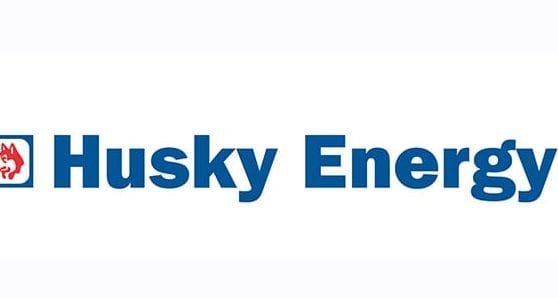 Despite a “challenging” fourth quarter, Calgary-based Husky Energy recorded annual net earnings of $1.457 billion in 2018, up from $786 million in 2017.
Despite a “challenging” fourth quarter, Calgary-based Husky Energy recorded annual net earnings of $1.457 billion in 2018, up from $786 million in 2017.
The company released its quarterly financial results on Tuesday, saying that net earnings in the fourth quarter of $216 million were down from $672 million in the fourth quarter of 2017.
“It was a challenging quarter,” said CEO Rob Peabody in a statement. “The oil spill on the East Coast was particularly disappointing, and we are continuing to work closely with the regulator to determine the root cause and apply learnings.
“We also saw a significant decline in Brent and WTI oil prices and extreme volatility in the WTI-WCS spread. Husky’s fourth quarter earnings, adjusted for FIFO impacts, continues to show the value of the integrated gorridor business and the strong contribution of our Asia Pacific business.”
The company said it generated funds from operations of $4 billion in 2018, an increase of 21 per cent from 2017.
Fourth quarter funds from operations were $583 million, compared to $1.3 billion in the previous quarter.
The fourth quarter reduction reflects several factors, said the company:
- integration benefits were impacted by lower synthetic crude oil prices due to Canadian pipeline constraints and associated reductions in margin capture at the Lloydminster upgrader;
- U.S. downstream results were weakened by narrower crack spreads, a planned turnaround at the Lima Refinery, and an unfavourable first-in, first-out pre-tax impact of $181 million (US$136 million);
- Atlantic production volumes were impacted by approximately 10,000 barrels per day over the quarter due to the suspension of operations at the SeaRose floating production, storage and offloading vessel in mid-November.
“Husky expects to continue to optimize its portfolio in 2019 with the strategic review and potential sale of non-core downstream assets, along with other actions and investments aimed at further reducing the company’s break-even oil price,” it said.
Husky said average annual production in 2019 is expected to be in the range of 290,000 to 305,000 barrels of oil equivalent per day, with capital spending anticipated to be in the range of $3.3 billion to $3.5 billion.
“Production reflects reductions associated with the government of Alberta’s mandatory oil production curtailments. Husky believes that this abandonment of free market principles has impacted investor confidence and created several business challenges, including the company’s ability to process and transport its production to markets unimpeded, and profitably. Curtailment rules disproportionately impact companies, like Husky, with significant downstream and midstream investments relative to producers who have not made these investments,” it said.
“Furthermore, the government’s curtailment formula does not consider Husky’s production growth over the year at Sunrise and Tucker, which are now at full capacity, and does not consider costs related to marketing commitments, or the closure, restart or early abandonment of wells and facilities. Husky continues to engage with the Alberta Energy Regulator and Alberta government to address the inequities, costs and other unintended consequences of production curtailment.”
As part of its increasing focus on its core heavy oil projects and downstream assets in the integrated corridor business, the company previously announced plans to market and potentially sell its Canadian retail and commercial fuels business and the Prince George Refinery.
– Mario Toneguzzi for Calgary’s Business
The views, opinions and positions expressed by columnists and contributors are the author’s alone. They do not inherently or expressly reflect the views, opinions and/or positions of our publication.

